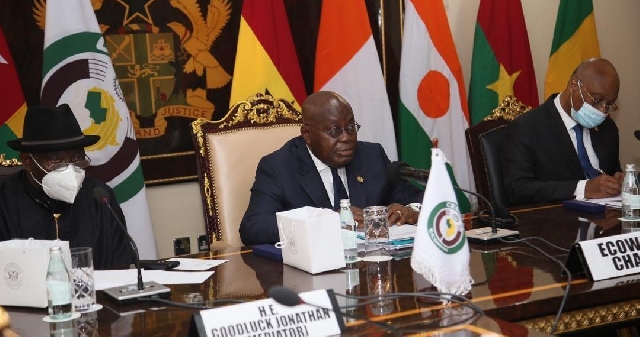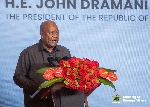'Unfortunate' Mali, Burkina Faso, Niger breakaway'll be 'negative' for their people - Akufo-Addo
 Nana Addo Dankwa Akufo-Addo
Nana Addo Dankwa Akufo-Addo
The "unfortunate" decision by Mali, Burkina Faso, and Niger to withdraw from the Economic Community of West Africa States (ECOWAS) "is going to be very negative for the populations there", Ghanaian leader Nana Akufo-Addo has said.
The former ECOWAS chair, however, said the regional bloc "is yet to meet" on the withdrawals.
"It happened on Sunday, and we are waiting for a signal from the head, Nigerian President Tinubu, to indicate the time when we will have a summit to examine the implications of what has happened and the way forward for the community,” Mr Akufo-Addo said.
According to an article authored by the Centre for Intelligence and Security Analysis (CISA), their decision could affect the free movement of goods and people within the ECOWAS region, especially since ECOWAS had previously restricted their access to regional financial markets.
CISA suspects the three countries may hit back, economically, at ECOWAS member states once they devise strategies to bolster their respective and common economies irrespective of whatever ‘sanctions’ the bloc has imposed on them.
The withdrawal, thus, could also deal a big blow to regional economic integration and cooperation, CISA analysed.
It may occasion a loss of trade and investment opportunities within the ECOWAS framework and disrupt the intertwined economies of member states, the independent and not-for-profit organisation noted.
It said the withdrawal might also adversely affect currency stability, infrastructural development, and joint economic ventures which straddle multiple countries in the sub-region.
Further, CISA fears the withdrawal of the three countries risks fracturing relations with ECOWAS member states, since the triad is now more likely to strengthen their alliance with Russia, whose interests in Africa do not align with those of Europe and the United States of America, who still have strong ties with most ECOWAS member states.
Such geopolitical shifts could hamper diplomatic interventions in the future and frustrate regional cooperation and collaboration on both regional and international issues, CISA noted.
Additionally, the article pointed out that the bloc needs a united front to resolve this thorny issue in order to have a concerted effort towards the fight against terrorism in the sub-region, particularly within the Sahel.
It warned that a lack of regional unity could render that fight extremely difficult.
Indeed, CISA cautioned: lack of cooperation may likely lead to thriving terrorism cells as well as increased terrorist activities; the proliferation of small arms and weapons, and other vices that may pose security threats to innocent citizens, particularly, women and children.
Source: Classfmonline.com
Trending News

Ex-footballer says he was wrongfully jailed after ‘hook-up’ encounter; claims police freed key suspect after allegedly taking bribe
12:38
Mahama to receive landmark Constitutional Review report on December 22
12:38
Forestry Commission hosts students from Finland and UCC
13:15
Former PNC flagbearer urges NDC to step aside in Kpandai rerun
12:49
Ghana, Qatar begin full implementation of labour mobility agreement
13:48
NDC Legal Director expresses concern over confusion surrounding Daddy Lumba’s funeral
12:20
Energy Minister bags PhD in Development Finance from University of Stellenbosch
12:28
CCAL proposes Atewa centenary and green festival to Okyenhene
13:06
Ghanaians happy with NDC’s first-year performance — Party communicator claims
12:38
Solomon Owusu claims NPP is seeing defeat in Kpandai re-run
13:28



